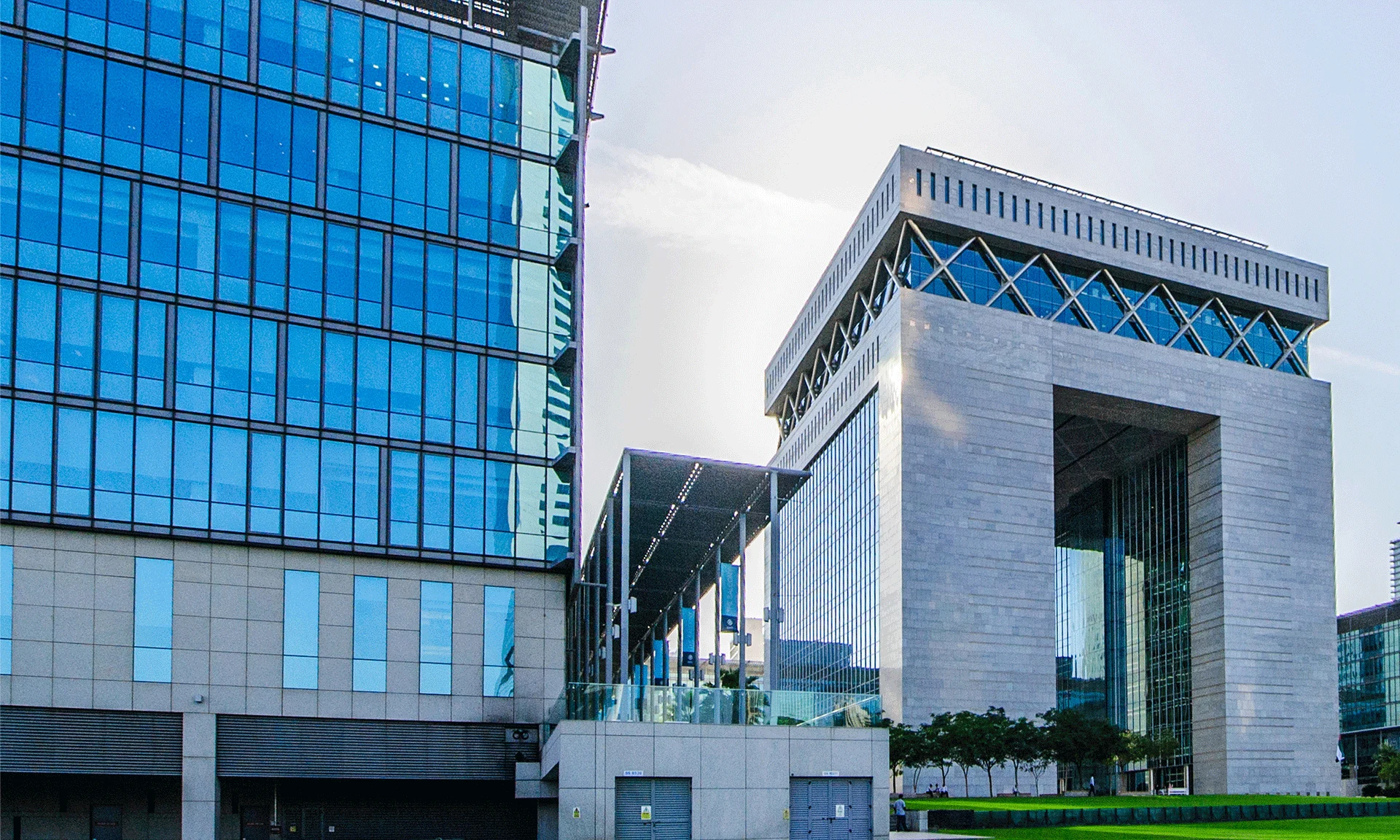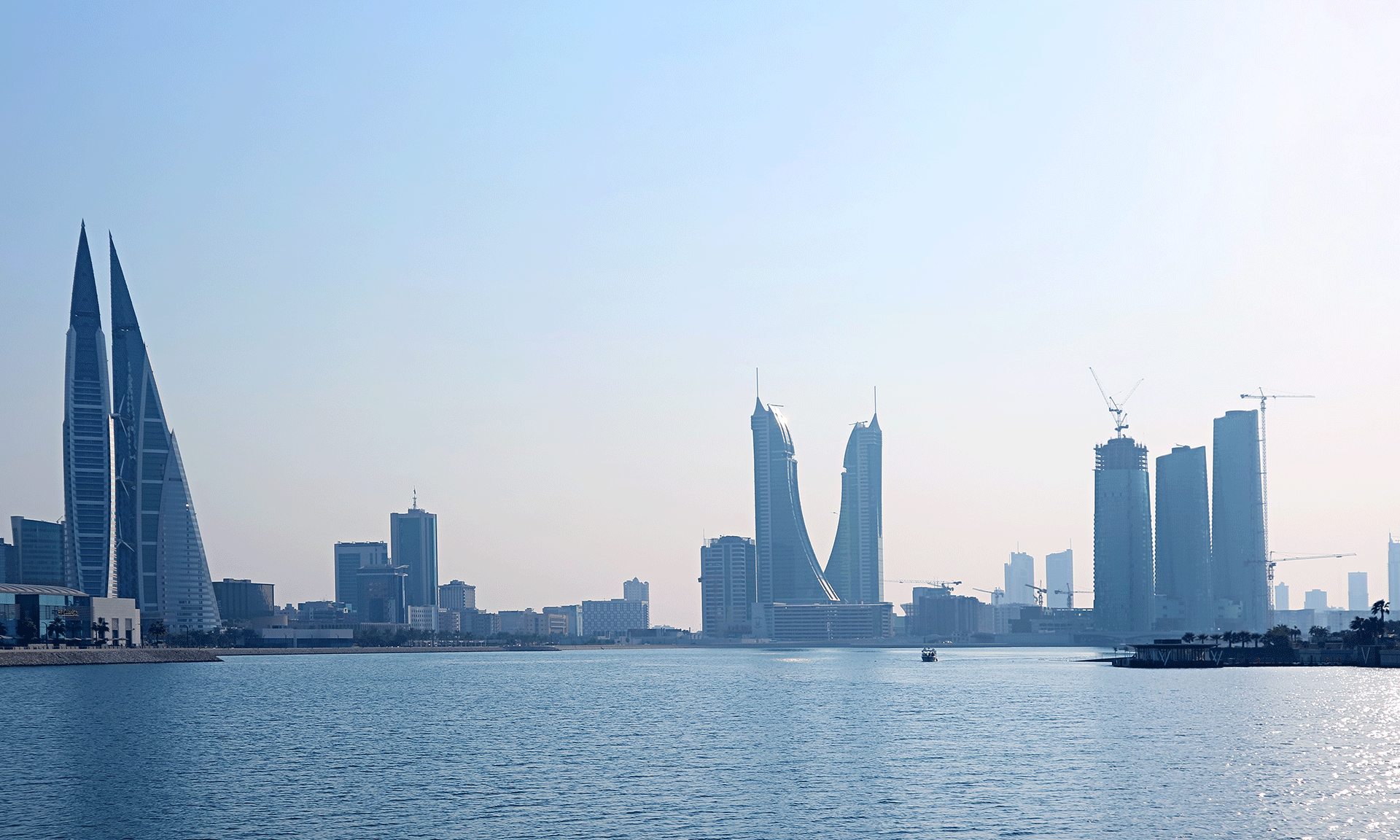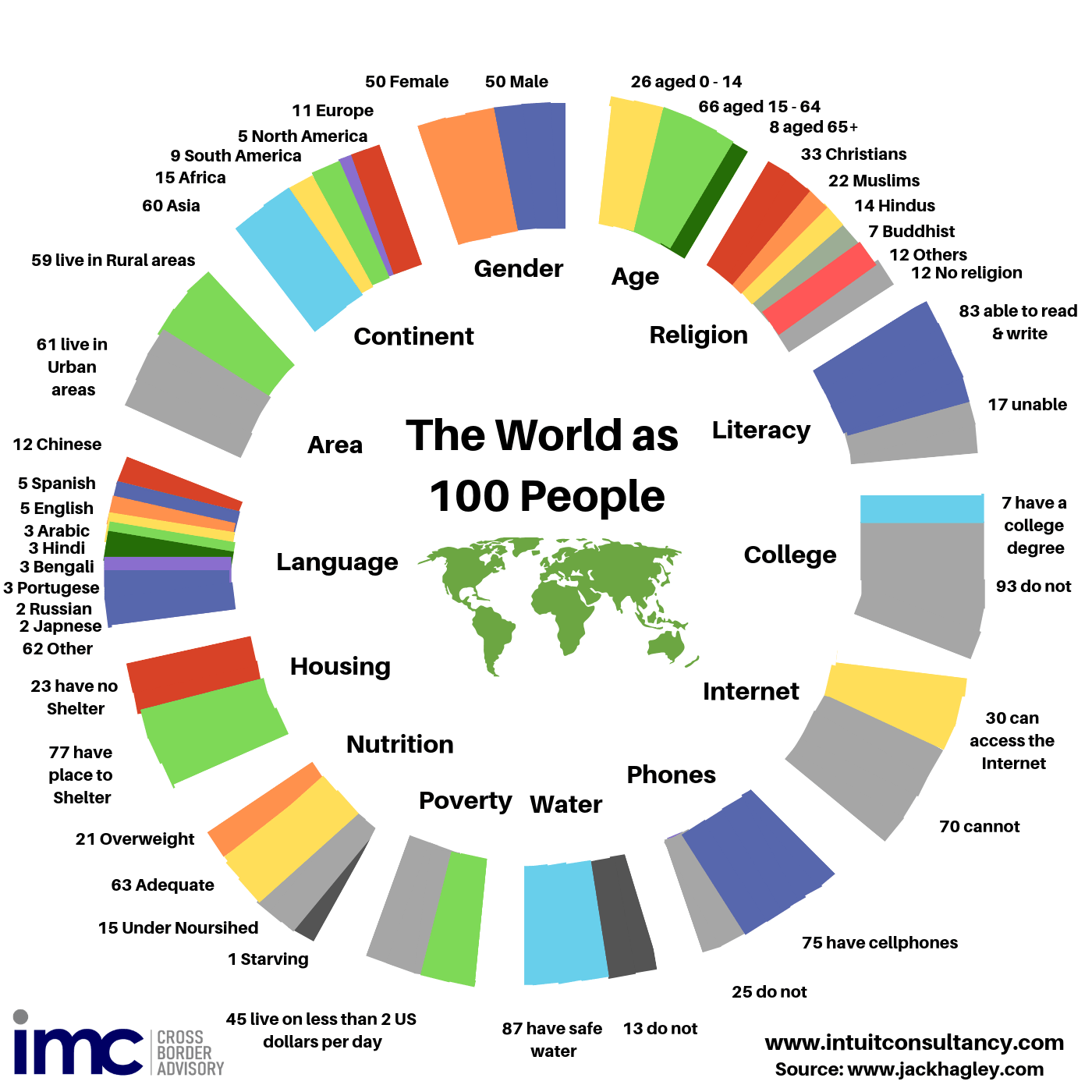
- Newsletter, U.A.E
- December 21, 2018
Abu Dhabi has launched the world’s first digital courtroom on Sunday. Launched by the Abu Dhabi Global Market Courts (ADGM Courts), these courts will revolutionize the way in which court proceedings are carried out. The courts will let the plaintiffs and respondents upload their documents using the online portal of ADGM Courts.
The digital courts shall have the power and authority to handle disputes of civil and commercial nature between parties. Since it is a digital platform, the courtroom will be paperless and use the digital screen to display the relevant documents during the court hearing. The parties shall have access to all the information as both plaintiff and respondent shall upload the necessary document using the online portal of ADGM Courts before the court hearing. Any update or change shall be notified to the party in real time.
Ahmad Al Sayegh, Minister of State and Chairman of the ADGM Courts said “Technology and innovation have been disrupting every aspect of our lives and the judiciary sector is no exception. The best innovations to come out of this sector are those that allow us to creatively manage the growing demand for transparency, information, speed and effectiveness,”
Linda Fitz Alan, registrar and chief executive of ADGM Courts said “We can do the court hearing by video conferencing, not every party has to be present in the courtroom. In fact, everybody can be on a screen if that’s the most efficient way. The judge overseeing the case will be the only person who has to be present inside the digital courtroom during the hearing because we are a public court. For anyone else — the lawyer, plaintiff and respondent — if there’s no particular need for it, they can all be on screen in different places,”
She further added, “We have some rules that determine the steps that need to be taken before coming to court, but essentially once a case is registered it will be brought to the court within 14 days to a month after which the judge will begin managing the case.”

- Article, Singapore
- December 20, 2018
A gateway to ASEAN, Singapore has one of the lowest corporate tax rates and also boasts of various business-friendly regulations that make it easy for organizations to set up their business and offices in this South-east Asia country.
Data shows that companies are looking for regions that have higher growth potential so that they can meet the demands of their stakeholders. Especially fast-growing Asian economies like China and the South-east Asian countries are a choice of many entrepreneurs because of their large and lucrative markets.
Singapore – A Gateway to ASEAN
So where does Singapore figure in all this? Gaining the fifth rank amongst the top 20 host economies in FDI inflows, Singapore has made its mark as the gateway to ASEAN and is a preferred destination for enterprises of all sectors and sizes to base their office or operations in Asia. Here in this article, we will talk about some of the major driving factor contributing to Singapore’s success in bringing in foreign companies to its shores.
Network of double tax treaties
Singapore is known for its extensive network of double tax treaties or tax agreements (DTAs) with over 80 nations across the globe. The main advantages of a DTA are that double taxes are avoided, there are lower withholding taxes, and there is a preferential tax regime. This enables in minimizing the burden of taxation for a company. Other than this, there is no capital gains and dividends tax, which further makes Singapore a lucrative choice for business investments by company formation in Singapore.
Appealing tax regime
The simple and investor-friendly tax regime is another big advantage. In Singapore, the maximum corporate tax rate on any taxable income is just 17%. There is no tax on capital gains and on dividend income and no withholding tax on post-tax dividends that are paid from Singapore. What’s more? All foreign-sourced income is completely tax exempt if that income has been taxed in a country having a headline tax rate of at least 15%. Then there are no restrictions on foreign ownership and no controls whatsoever on foreign exchange.
Strategic location with superb connectivity
Singapore has is very strategically located at the intersection of the main trade and all the shipping routes of the world, for example, the major sea route connecting India and China. Known as a transportation hub, Singapore is proud to have the award-winning Changi Airport and also boasts of a world-class port infrastructure, which has been awarded the ‘Best Seaport in Asia’ many times. With its telecommunications infrastructure also at a world-class level, this nation has been ranked as one of the top in leveraging information and also communications technologies to improve its country competitiveness by the World Economic Forum. Today, Singapore stands as one of the two Asian countries ranking in the top 10 amongst 139 countries worldwide.
Skilled and multilingual resources
The business environment in this country is very attractive to skilled and multilingual workers who come from across the globe. The fast-moving innovative work environment, along with a pool of local Singapore talent, reinforces Singapore’s reputation as the most productive, flexible and motivated workforce in the region, which has also been proven by the data and rankings in the IMD World Competitiveness Yearbook.
Smart immigration policies
Singapore offers many types of Visa schemes for talented and qualified professionals and entrepreneurs. The government is constantly making efforts to pull in foreign investments and enhance the level of its local workforce by adding top talent from across the globe.
State-of-art infrastructure
One of the most stable and prosperous countries in Asia, Singapore’s stability in terms of politicals, an array of available facilities, public services conveniences, and the cosmopolitan environment makes it an attractive destination for people globally. With its multitude of dining, entertainment, tourist options, best-in-class infrastructure, and many internationally-recognized educational institutions and universities, Singapore offers a high standard of living yet having its friendliness and warmth.
Excellent IP protection regime
A hearty intellectual property (IP) rights regime and most trusted legal system further adds to the Singapore’s list of advantages. The IP policy of the government, which aims at encouraging innovation and growth of business and commerce in Singapore has been recognized by the World Economic Forum’s Global Information Technology Report 2017-2018 as the top Asian regime for the protection of IP. Despite the high international rankings, additional initiatives by the government are underway to improve the country’s IP landscape further and build it as Asia’s IP hub.
Efficient and effective legal system
Singapore’s legal system is well-developed and has successfully maintained its relevance in the existing cultural, commercial and social environment, by taking in the common law and other best practices from evolved legal systems. The country’s legal system has won accolades globally because of its efficiency, integrity, and for being the least bureaucratic in Asia. Companies are not stuck in red tapism or slow operations because of bribery or other issues. Singapore’s commercial legal structure is also known for its fair and impartial ways.
To conclude, Singapore remains an attractive destination for offering various opportunities for business and investment in the Southeast Asian region. So if you require any assistance or professional advice on company formation in Singapore, Visa services in Singapore or Accounting services in Singapore, do get in touch with us and we would be happy to help.


- Newsletter
- December 17, 2018
If you check the global ranking of various places you consider to do business, Singapore surely shows as one of the top choices. It figures in the most smooth and straightforward countries to do business when it comes to financial compliance.
Many companies throughout the world have opted Singapore to set up their base in Asia Pacific. Some recent global trends and new developments further strengthen the case for company formation in Singapore and Singapore company incorporation even further.
Singapore’s government nowhere seems to be resting; it is introducing new changes to improve the business environment to a larger extent and make some amends to promote investments from some particular industries.
The Monetary Authority of Singapore (MAS) recently introduced the Variable Capital Company (VCC) structure, which is going to boost this country’s influence as a hub for the domiciling and management of funds. This simplifies the process of entering and exiting the funds for the investors for managing multiple sub-funds and in addition, streamlines the accounting procedures.
This change has been announced shortly after the changes done to the tax treatment of various Singapore-listed real estate investment trusts (S-REITs), which is slated to promote the progress of this asset class even further. The authorities have announced many incentives and put up support infrastructure in place so as to advance future-focused industries in the country, ranging from fintech to green buildings.
The Monetary Authority of Singapore has also announced a new Code of Corporate Governance 2018 in the month of August with a positive outcome to assist continued corporate performance and innovation along with strengthening the confidence of investors in the Singapore’s capital markets.
Foundations with a big promise
Other than pro-business regulations, Singapore is also blessed with private wealth and many high net worth investors (HNWI). In fact, this country’s ultra-HNWI population is expected to spiral up by 40% by the year 2026, thus leaving behind London and New York. The investors are going to take advantage not only from an optimistic funding environment but also a pool of very skilled local talent.
However, this doesn’t mean that there are no challenges or obstacles of doing business in the country. The Singapore government has been tightening its process for hiring any new global executives, making the anti money-laundering more stringent, and know your customer (AML/KYC) process steps including processes like opening a new bank account, could at times be more complicated than organizations expect.
But these challenges too have related positive points. This nation’s stability and high standard of living means bringing in and hiring global talent of a high potential that meets the benchmarks set by the government is hardly an issue for long. The thorough checks put in place by some banks are a proof of the reliability and safety of the financial system, which spurs the investors to do transactions and house funds in complete confidence.
Tapping the potential of the regional network
Singapore is one of the partners in the Association of Southeast Asian Nations (ASEAN), a region which is expected to rank as the fourth-biggest economy internationally by 2030, housing a rising middle class. Because of its highly-developed infrastructure and connectivity, this city-state offers the ideal base to make a presence throughout Southeast Asia and outside.
The potential investors who are planning to make use of Singapore as a point to get into ASEAN must ideally seek some local support before planning their strategies and steer ASEAN’s still distinct bureaucracies.
By collaborating with such a partner from the start, the investors can plan their Singapore and other future operations in such a manner that would enable in moving smoothly and effectively so that they can tap into the best potential of the region.

- Newsletter
- December 17, 2018
If you want to own or hold Dubai freehold properties, then Dubai-based JAFZA offshore company is the best option and is also the usually preferred SPV/SPC for this purpose.
JAFZA Offshore jurisdiction has seen a lot of evolution in the last few years and has become the most sought-after jurisdiction for owning Dubai freehold properties in UAE. JAFZA offshore company is the only one that is allowed by the Dubai Land Department to possess property in chosen freehold areas, thus transforming it into the common vehicle when it comes to corporate property ownership for global individuals or legal entities/businesses. The free zone authority has recently announced new more investor-friendly and flexible Offshore Company policies and regulations.
Key features of the new JEBEL Ali Offshore Companies Regulation 2018
The Jebel Ali Free Zone Offshore Companies Regulations 2018 actually completely replaces the Jebel Ali Free Zone Offshore Companies Regulations 2003. The New Offshore Regulations are not only more investor-friendly but also offer new opportunities for global investors to streamline their enterprises in the UAE. The JAFZA Offshore companies can also hold shares in the free zone and onshore businesses to make the operations of a business smoother within the Middle East and outside of the UAE.
Options of Visa
An Offshore company that possesses any property in one of the selected freehold areas is permitted to apply to JAFZA to get a residence visa for its members like its Shareholder and/or Director.
Class of Shares
The new regulation has come up with the specification to set up a separate class of shares and hence give an opportunity to its investors to exercise management control over the offshore company.
Registered Agent
Regulation 32.1 of the newly-announced Offshore company regulation 2018 reads as ”An Offshore Company shall at all times have a Registered Agent. This requirement is optional for Offshore Companies that maintain an office in the Zone”.
Registered Office
The regulation 30(1) of the newly-announced offshore company regulation 2018 states that an offshore company has to as a mandate at all times have its registered office, which should be an office that is maintained in the Zone by the company or an office that is maintained in the Zone or in Dubai by the company’s registered agent, and all the communications and notices are addressed here. As per the New Offshore Regulations, an Offshore Company is also allowed to hold a lease of property for using as their registered office in any of the chosen freehold areas in the UAE, have a stake in some other operating company in the UAE and also possess a property in one of the specified freehold areas.
Number of Directors
According to the new offshore regulation, the business affairs could be managed with one director and this could be a corporate body. The Regulation 33.1 of new JAFZA Offshore Company regulation states ”Subject to any limitations in the articles of association, the business and affairs of an Offshore Company shall be managed by at least one Director.”
The needed majority for passing any resolution
Contrary to the repealed JAFZA Offshore Company Regulation 2003, the new 2018 regulation mandates 75% of the members to vote in person or exercise their vote through a proxy at the company general meeting for which a statutory notice explaining the purpose of the resolution must be circulated to all the members.
Re- Domicile or transfer of incorporations
Regulation 111 & 116 of the new JAFZA Offshore Company, 2018 permits the businesses and organizations to re-domicile and also transfer to this jurisdiction if they are authorized by the laws of the jurisdiction in which it was incorporated. A JAFZA Offshore Company may need a resolution and an approval of Registrar of Offshore companies for applying to the relevant official or a government or public body of a particular foreign jurisdiction for transferring its incorporation to the foreign jurisdiction and also request that the Offshore Company should be continued as a foreign company.
Prohibition of loans to directors
AS per the new JAFZA Offshore regulation, it is strictly prohibited to giver a loan to a Director or to go into any guarantee or offer any security related to a loan made to a Director without the approval of members holding not less than 90% of the normal value of shares, thus giving a right for attending and voting at any meeting of the members.
Transformation of offshore company to onshore free zone company
An Offshore Company requires a resolution for applying to the Registrar if it decides to change its corporate form into a Free Zone Company in the Jebel Ali Free Zone. The date of this incorporation of the Free Zone Company would be the same as the Offshore Company and all the rights and obligations of the Offshore Company would continue with the Free Zone Company.
If you need professional advice, we will be more than happy to help in JAFZA offshore company formation or Company formation in Dubai. Do get in touch and our experts would guide you the next steps as per your requirements.

- Newsletter
- December 17, 2018
The DIFC has lately announced their policies and guidelines regarding the Ultimate Beneficial Owners (UBO) of companies. A beneficial owner is defined as a person within a company who, as per the new DIFC regulation, directly or indirectly controls or holds either of the following:
- Shares or some other Ownership Interests in the applicable person over the relevant percentage;
- Voting rights in the applicable person above or more than the relevant percentage; or
- The right to give appointment or remove a big number of Directors of the applicable or relevant person.
Regarding a partnership, the UBO is allowed to exercise considerable control overall.
In case it’s a foundation or some Non-profit organization or, the UBO is usually an individual or person who has the legal control of all the activities of the Governing Body of the business entity or the operations conducted by it.
Details of the Law
The basic premise of the Ultimate Beneficial Ownership Regulation (Consultation Paper Number 7 of 2018) is to clarify that the UBO of a company or a business entity is to be identified. They should be a formalized prerequisite within the earlier mentioned legal forms of enterprise. In addition to this, this new regulation also explains that the DIFC holds the responsibility for ensuring that they are aware of the UBOs and possess updated information about them.
The exemptions are covered under Article 2 and Article 3 provides the definition of a UBO according to this law, which we have mentioned in this article. This article contains in-depth information and deals with other circumstances like 3.1.2, which concerns cases of two or more UBO parties.
A registrar holds all the collected information on the UBOs within the DIFC, and the relevant or applicable person decides to acquire this information and then communicate it to the registrar, as described in Article 3.2.2.
Article 4.1.4 describes the specific data regarding the requirement of collecting on the UBOs. This includes information such as the UBO names, nationality, addresses, date of birth and other such details. Article 4.2 explains the process if a new UBO comes or replaces the earlier one and how an application has to be made to the court. Other than this, in case any problems arise regarding the current UBO, an application is required to be made in a court to find a resolution of the matter.
Article 5 talks about an entity’s Nominee Director. This person who will be a Nominee Director of a company, has to be registered, and the information to be collected is the same as the UBO, and Article 5.2.1 confirms the same.
The duties and responsibilities of the registrar are mentioned under Article 7 and include data collection and analysis of the data; however, this should only be with a purpose to regulate things like money laundering, terrorist financing, or criminal organizations and sanctions conformity in the DIFC, and to be in compliance with any other such applicable laws in the DIFC.
Last but not the least; Article 8 describes any situations where any persons who had to obtain the information on the UBO or the Nominee Director and fails to follow any of these regulations, would be struck off by the registrar.

- Newsletter
- December 17, 2018
Almost after a year of VAT implementation, too many businesses and organizations in the UAE and Saudi Arabia still require assistance in setting up their tax treatment accurately, while enterprises in Bahrain would require being VAT-compliant from 1 January 2019.
The United Arab Emirates (UAE) and Kingdom of Saudi Arabia (KSA) have been first of the six Gulf Cooperation Council (GCC) member states who introduced VAT at a rate of 5% in January 2018. It’s been a year and there are still so many companies who are struggling to be compliant.
So, what were the reasons that these companies tripped in the UAE and Saudi Arabia? What could be the challenges for those functioning in Bahrain starting from January?
We have collated the top five key lessons that companies across the Gulf could go through while the VAT rollout process continues. In case you need help in VAT implementation in GCC, complying with VAT rules, or finding VAT consultants in Dubai, just get in touch with us.
1. Linking and validation is still a work-in-progress
Organizations have had issues while linking their tax registration number and also customs registration numbers to official systems so as to conclude and submit their final VAT return, for no fault or miss from their side.
As per the GCC’s VAT agreement, the VAT payable on imported goods in member states should be paid right at the first point of entry and is then transferred to the last destination state in the framework of the GCC Customs Union. But in practical sense, every member state has to build its own electronic tax system and then link it with the GCC tax information centre which operates through a central website. As all the GCC states have still not implemented VAT, the unified GCC tax information ‘hub’ is not connected to each local tax system yet. Provisionally, the UAE and KSA are considering the transactions between them as outside of the GCC.
Till such time when all the six GCC states bring in VAT, various transitional rules will remain in play and there would be a lot of local tax complexity. There is an impact on business, for example, in the ‘use and enjoyment rules’ as all the member states are considered as ‘non-GCC’ – which impacts the cashflow.
After the remaining four GCC states also announce VAT, businesses will have to readjust their tax treatment especially for inter-GCC transactions while complying with the unified GCC VAT agreement.
2. Know about your VAT from the accounting requirements
In the UAE and KSA, there have been confusions between VAT reporting requirements and the accounting rules.
Irrespective of the date of the sales invoice, the VAT liability is calculated based on the time period in which the related payment is given, or the products/services are delivered. The organization’s ERP systems should be checked accordingly to make sure that the charging VAT is correctly adopted.
3. Different tax treatments in different zones
There are different tax treatments in the UAE in various designated zones (DZs or free zones) and also in mainland entities. DZs are especially designed to give incentives to enterprises and be the tax-free zones for goods. They are thus outside of the UAE for the purposes of VAT.
This, however, does not mean that any business set up as a DZ or free zone entity will be exempt from VAT. It completely depends on how their business activities are managed inside the zone.
4. Consistent reporting is critical
The Emirate-level reporting guidelines are applied variably in the UAE, because of which some businesses at times wrongly account for VAT on the sales they make, based on where their customers are located. It is advised to work with local tax experts to make sure that you’re reporting as per the accurate requirements.
Companies could face administrative penalties if they violate the VAT law, like missing the payment of VAT or filing deadlines. The VAT return has to be filed with the tax authority before 28th (in the UAE) or before the last day (in KSA) of each month after the end of the tax period.
5. Business versus personal expenses
Some expenses undertaken for a business can be input as VAT recoverable; however, they should have been used for making taxable supplies (standard-rated or zero-rated). The input tax cannot be recovered if the company provides exempt supplies which are non-taxable.
The VAT law also has a Capital Assets Scheme which enables to recover the input tax paid while acquiring new assets. The initially-recovered input tax is finally adjusted based on the actual usage during a particular period.

- Newsletter
- December 11, 2018
[vc_row row_type=”row” use_row_as_full_screen_section=”no” type=”full_width” angled_section=”no” text_align=”left” background_image_as_pattern=”without_pattern”][vc_column][vc_single_image image=”30210″ img_size=”full”][/vc_column][/vc_row]

- Newsletter
- December 11, 2018
There’s good news for Singapore companies as it’s going to get easier for them to set up their businesses in the Netherland now. This is because both the countries have agreed recently to further open their markets and improve the opportunities for innovation.
A two-year agreement was signed between Enterprise Singapore and the Netherlands Enterprise Agency at a business forum held in Rotterdam, when President Halimah Yacob’s was visiting the country.
The memorandum of understanding’s (MOU’s) focal point is on areas like healthcare, smart mobility and logistics, and food technology.
The objective of this MOU is to generate better opportunities for both Singapore and Dutch enterprises to collaborate especially in the area of innovation and also market access and help in expanding each other’s skills and markets in Europe and Asia.
As per the Global Innovation Index, the Netherlands and Singapore stand in the top five most innovative countries in the world. Many other such agreements with an aim to improve cooperation especially in the fields of food science and customs were also signed recently.
A plan to aid cargo clearance between both these countries and also a Singapore Business Federation (SBF) agreement to boost the financial cooperation and to open up more business opportunities between both countries has been done.
“(The Netherlands) are very much like us – a small country in a big region. They are very enterprising; they are also quite careful. We find the mindsets quite similar,” said Teo Siong Seng, the SBF chairman 1 was leading the Singapore business delegation.
Tan Wu Meng, who is the Senior Parliamentary Secretary for Foreign Affairs and Trade and Industry said, “As talk about building walls gets louder, it’s important that like-minded partners like us must continue building bridges that are stronger.” He also said that trade agreements like the European Union-Singapore free trade and other investment protection pacts offer an opportunity for all the involved parties to signal their shared commitment towards free and open trade.
Madam Halimah and other important Singapore officials were also amongst those who visited the Dutch seat of government in The Hague. There, she met with the heads of the upper and lower chambers of the Parliament – President of the Senate Ankie Broekers-Knol and also the Speaker of the House of Representatives, Khadija Arib.
The Binnenhof (the building complex) was the Dutch legislature for over 500 years and is one of the oldest House of Parliaments in the world which is still in use currently.
Madam Halimah also mentioned that they will continue to encourage the Netherlands to use Singapore as a base from where they can explore and do business with the South-east Asia region, which is a nascent, budding and dynamic market of more than 620 million people.
So if you are heading for Singapore company incorporation and don’t know how to begin, do give us a chance to assist you. Our experts at IMC will help you with any queries and take the burden off your shoulders.

- Newsletter
- December 4, 2018
Singapore and the European Union (EU) have just signed a free trade pact which is called the EU-Singapore Free Trade Agreement (EUSFTA) with a goal to strengthen their economic relations. In addition, two more agreements were signed between the EU-Singapore Partnership and Cooperation Agreement (ESPCA) and EU-Singapore Investment Protection Agreement (EUSIPA). This pact shows their commitment to free trade especially with increasing protectionism and is expected as a preface to an FTA in times to come between the EU and the Association of Southeast Asian Nations (ASEAN).
Sanction and coming into force
The EUSFTA and EUSIPA are now under discussion and votes will be collected in the European Parliament in 2019 Quarter 1. After approval by the European Parliament and the national parliaments of every EU member state, the EUSFTA and EUSIPA will come into force and announced and this process would take about a couple of years.
Trade links between Singapore and the EU
Do you know that Singapore ranks as 14th largest trading partner in the EU in terms of goods and the 4th largest in terms of services? The EU is the country’s 2nd biggest trading partner for goods and the biggest for services. It is predicted that over 10,000 EU-based organizations that have their business in Singapore would highly benefit from this FTA. Now, other Vietnam, Singapore is the second ASEAN partner to sign an FTA with the EU.
Foreign direct investment (FDI) is also very important in the economic relations in Singapore and the EU. The size of trade between these two regions and the reciprocal FDI helps in making Singapore the top-most players in terms of EU trade activities in Asia.
Trade in goods
The EU decided to slash its tariffs to 0 within the coming 5 years after the coming in force of the EUSFTA, which will cut 75% of the tariff lines to almost 0% soon and the rest in the next three to five years. Some current tariffs, such as on agricultural products, would remain. In Singapore, almost 99% of goods from the EU are currently permitted duty-free access.
This agreement will strengthen cooperation in terms of regulatory standards and will also reduce needless technical barriers in trade. Some specific guidelines for food safety are also included. EU standards regarding automobiles and their parts are already accepted by Singapore. Third-party testing of Electronics would be removed slowly in Singapore complying with the EU rules. The EU calls for better transparency for pharmaceutical pricing. Also, green technology should be considered the same as national products in both regions in this agreement.
Trade in services
Trade in services is prepared with a positive list, which includes 12 sectors (with over 160 sub-sectors) which are open for competition from the associate countries. Postal service is now opened up on both sides and they also agreed for better co-operation in e-commerce and remove needless restrictions and rules.
Investment protection agreement
The EUSIPA is going to replace 12 current Bilateral Investment Agreements among Singapore and the EU. This agreement lays standards of fair and equitable treatment (FET) for investments between both the parties.
A Member Firm of Andersen Global
- 175+ Countries
- 525+ Locations
- 17,500+ Professionals
- 2350+ Global Partners



















 IMC Group
IMC Group